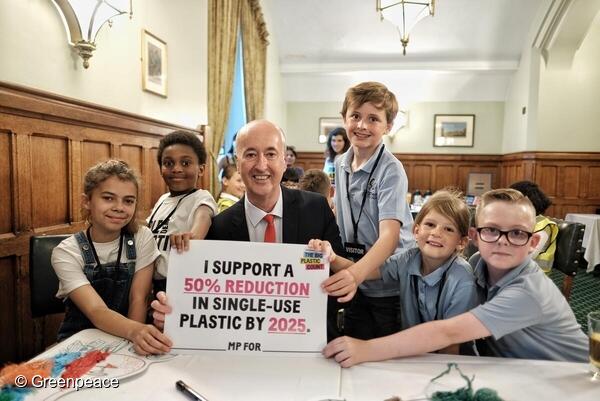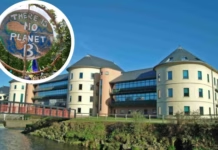12,190 pieces of plastic were thrown away in one week by 190 households in Swansea, according to the UK’s largest ever survey of household plastic waste.
For one week in May, just under 100,000 households across the UK – nearly a quarter of a million people – counted their plastic packaging waste and sent their results to Greenpeace and Everyday Plastic as part of The Big Plastic Count.
On average, each UK household threw away 66 pieces of plastic packaging in one week, whereas each household in Swansea threw away slightly less than the UK average, at 64 pieces. UK-wide, this amounts to an estimated 3,432 pieces per household when applied over a year. Therefore, nearly 100 billion pieces of plastic packaging are estimated to be thrown away by UK households every year, with just 12% likely to be recycled in the UK. More of the UK’s household plastic waste (17%) is being shipped overseas than being recycled at home. Almost half (46%) of the UK’s household plastic waste is being incinerated whilst the remaining 25% is buried in landfill.
83% of the plastic recorded was from food and drink packaging waste, with the most common item being fruit and vegetable packaging.Alison Broady from Mount Pleasant, said:
‘I’m horrified to learn that just 12% of the plastic we produce is likely to be recycled, and that the rest ends up as pollution. I sort my plastic waste and recycle what I can, but it’s clear that this system can’t cope with all our waste, and that it’s up to Government and big brands to reduce the amount of plastic being produced in the first place.’This year, the government is starting to decide on legal targets to reduce waste. Greenpeace Swansea is calling on the Government to set legally binding targets to almost entirely eliminate single-use plastic, starting with a target of a 50% cut in single-use plastic by 2025. Alternatives should be affordable, reusable and accessible, including to those with disabilities. Swansea volunteers are also calling for a Deposit Return Scheme for plastics re-use and recycling, and for a ban on the dumping of our waste onto other countries, and for a moratorium on new incineration capacity.
Alison continued ‘When we were out and about in Swansea talking to local residents about The Big Plastic Count, people were really keen to take part, and to find out what really happens to the plastic they put into the bin or to the recycling bag. So I’m pleased that Swansea West MP Geraint Davies met with school children last month about their plastic footprints, and urge him to keep calling on the Government for the ambitious plastic reduction targets that we urgently need’

| [donate]
| Help keep news FREE for our readersSupporting your local community newspaper/online news outlet is crucial now more than ever. If you believe in independent journalism,then consider making a valuable contribution by making a one-time or monthly donation. We operate in rural areas where providing unbiased news can be challenging. |



















